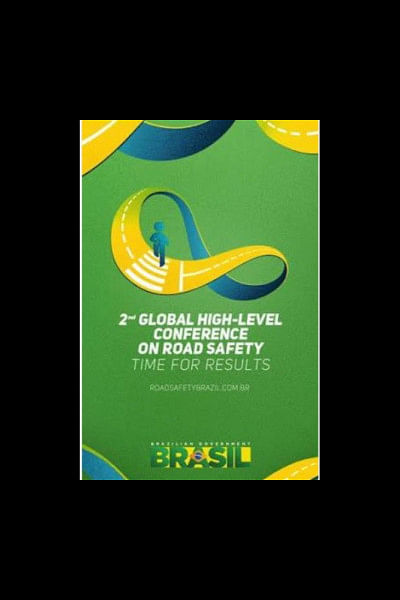Ensuring pedestrians' safety top priority

More than 130 countries have made a commitment to making their roads safer for users, especially the most vulnerable pedestrians, cyclists and motorcyclists, by improving and enforcing laws and developing sustainable public transport.
The commitment came in the Brasilia Declaration recently adopted after a two-day global high-level conference on road safety in the Brazilian capital Brasilia.
“The promotion of sustainable means of transportation -- particularly safe public transport, walking, and cycling -- is essential for the promotion of safety in traffic,” says a document as declared by the participant countries.
The participants have also reasserted, under the 2030 Agenda for Sustainable Development (SDGs), to decrease by half the deaths caused by traffic accidents by 2020. According to WHO estimation, road crashes annually claim 1.25 million lives, 90 percent of them in low and middle-income countries.
As per the declaration, priority will be given on the safety of pedestrians, cyclists and motorcyclists, who share half of the total victims in road traffic crashes worldwide.
Some 32 percent of the fatalities occur in Bangladesh involve pedestrians. With the number of motorcycles rising fast [currently about 1.1 million], the number of fatalities of motorcyclists is likely to increase in near future, many predict.
Recognising the fact that motorcyclists being the most vulnerable victims worldwide, the Brasilia Declaration has adopted developing and implementing legislation and comprehensive policies on the use of motorcycles -- including education and training, licensing of the driver, vehicle registration, work conditions, use of helmets and personal protective equipment.
The South East Asian Region (SEAR) has a grim picture of motorcycle crashes and casualties with nearly 10 percent more than that of the global 25 percent such deaths.
The representatives from SEAR have agreed to work together to curb all types of road accidents and save lives. There was no representative from Bangladesh in the SEAR group.
“Deaths and injuries in traffic are also matters of social fairness, given that poor and vulnerable people are also vulnerable road users, most often [pedestrians, cyclists, drivers of two and / or three-wheeled motor vehicles and passengers of unsafe public transportation],” states the declaration.
To protect those users, one of the commitments made by the countries is to establish and implement safe and appropriate speed limits along with suitable safety measures. The measures include road signalling, radars with cameras and other speed restricting mechanisms, particularly near schools and residential areas, in order to increase the safety of all road users.
The targets of reducing deaths and injuries caused by traffic accidents worldwide by half by2020 and increasing from 15 percent to 50 percent the percentage of countries with comprehensive legislation on five key risk factors -- not wearing seatbelts, helmets and protective devices for children, combination of alcohol and driving, and exceeding the speed limit -- were reaffirmed in the declaration.
The Brasilia Declaration on road safety recognises that the majority of these deaths and injuries are predictable and avoidable. It says some countries have made progress in road safety improvement, but much remains to be done to save lives from road traffic disasters.

 For all latest news, follow The Daily Star's Google News channel.
For all latest news, follow The Daily Star's Google News channel. 



Comments